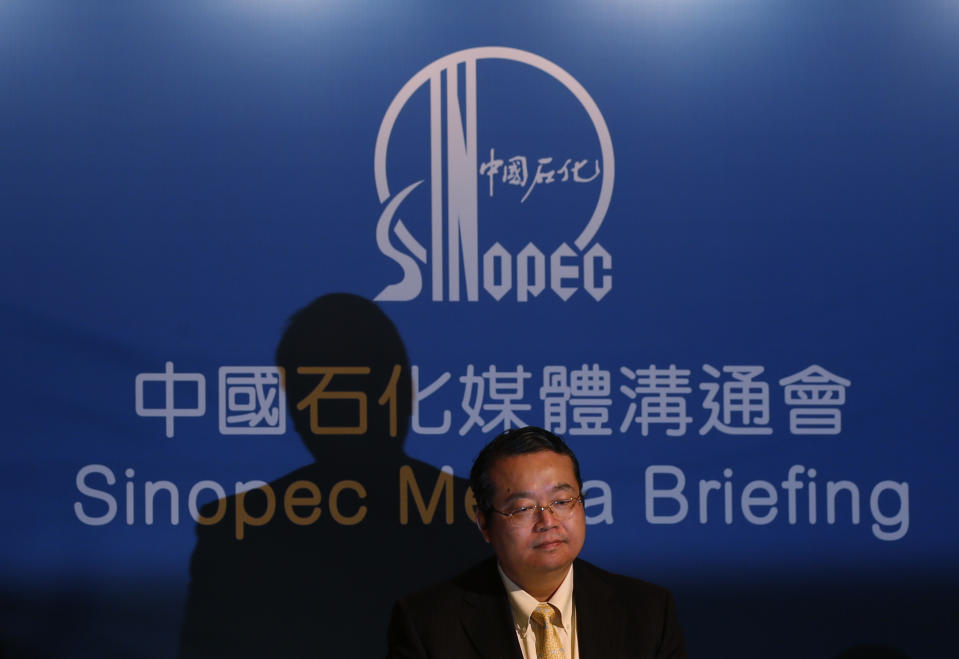Sinopec vows to clean pellet spill from HK beaches
HONG KONG (AP) — Chinese oil and chemical company Sinopec Corp. promised Thursday to clean up hundreds of millions of its tiny plastic pellets that washed up on beaches across Hong Kong after they fell off a ship during a strong typhoon.
The company, one of China's three major state-owned oil companies, said it is setting up a 10 million Hong Kong dollar ($1.3 million) cleanup fund, arranging industrial cleaning equipment and sending staff to help with the effort.
Some 150 metric tons of the pellets spilled out of six shipping containers that were knocked off a freighter in waters south of Hong Kong on July 23 during Typhoon Vicente, the strongest storm to hit the southern Chinese city in 13 years.
Five of the containers and at least half of the pellets have been recovered but that leaves plenty of the translucent particles, just millimeters in diameter, coating beaches. On some beaches there was so much it was piled up like snow.
Also known as nurdles, they are the raw materials used by factories to make other plastic products like plastic bags and bubble wrap.
Local environmental groups worry that the pellets could absorb toxins and pollutants before being eaten by fish, making their way up the food chain and posing a threat to humans and rare marine species such as the Chinese white dolphin. But the company said the risk was low because the pellets were chemically stable.
Sinopec has sent 120 staff based in Hong Kong to help the hundreds of volunteers and government staff working on the cleanup, executives said. The company has rented generators and industrial vacuum cleaners to speed up the work and hired five divers to examine the situation underwater. And it would top up the cleanup fund if necessary.
"Our company has been very anxious about the issue," said Lu Dapeng, a spokesman for Sinopec, also known as China Petroleum & Chemical Corp. Lu said the company would focus its efforts on finding the sixth container as well as "work to make sure the original appearance of the beaches can be restored."
The pellets were carried in sacks bearing Sinopec markings, which have also been washing up on beaches. They were being transported from one Sinopec location to another in southern China by a China Shipping Container Lines Co. vessel.
Lu said the company would not "shirk" its responsibilities but added that it would be up to the courts to decide who was ultimately responsible.



